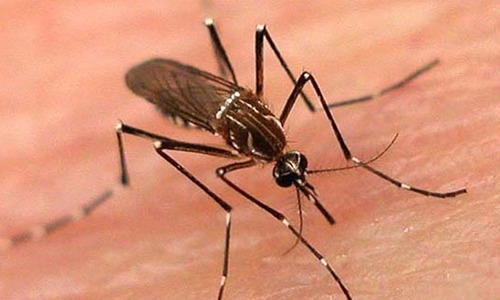PESHAWAR: The health department has established four regional directorates with vast administrative powers to ensure prompt healthcare service delivery at primary and secondary levels.
The department has appointed four regional directors (RDs) including Dr Shahid Younas for central region, Dr Shaukat Ali for Malakand, Dr Faisal Khanzada for Abbottabad and Dr Ubaidur Rehman for south region. They will start their assignments after issuance of notification regarding their job description.
Last month, the department re-designated four posts of additional director general of BPS-20 at the office of Director General Health Services (DGHS), Khyber Pakhtunkhwa as regional directors being part of the programme to decentralise powers.
Sources said that so far, all the administrative matters of the districts were handled by DGHS owing to which the activities continued to suffer in the face of delays.
Directors’ powers include transfer, posting and leave matters of employees
On Saturday, health department notified terms of reference of RDs. They have been entrusted with responsibilities for all the administrative affairs of the primary and secondary healthcare facilities in their respective regions.
Their powers include transfer, posting and leave matters of the employees from BPS-1 to BPS-16 within the region, making performance-based recommendations to health department regarding posting/transfer of district health officers (DHOs) and medical superintendents, acting as drawing and disbursement officer (DDOs) for both salary and non-salary components of the expenses of their offices.
Additionally, they have also been empowered to propose posting of employee in BPS-17 and above to DGHS for improvement of healthcare services, according to the notification.
The newly-appointed RDs will also act as the reporting officer for the performance evaluation reports of the medical superintendents and DHOs.
They have been authorised to function as the appellate authority in administrative matters and disciplinary proceedings for employees working in BPS-1 to BPS-15.
According to the notification, the RDs have also been tasked to pay supervisory visits to all the health facilities in their respective regions as per monthly schedule for prudent utilisation of resources and report the same to the office of DGHS.
The regional directors will convene monthly review meetings on performance of medical superintendents and DHOs and will monitor, supervise and report all the developmental projects to the office of DGHS. They will ensure coordination with other departments for successful implementation of all health initiatives in their regions.
According to job description of the RDs, they will hold daily, weekly and monthly meetings with the DHOs and medical superintendents to review key performance indicators (KPls) and give feedback to DGHS.
They will ensure availability and functionality of equipment, availability of medicines and regularity of staff at all levels of health facilities in the relevant region and will submit performance report of their regions to health department and minister’s office.
The directors will also maintain liaison with regional and district administrations besides other line departments in the region as provincial representative of health department. They will also keep close coordination with DGHS, health secretary and minister’s offices and will ensure implementation of all the directives issued by these offices.
The notification said that the RDs would ensure proper functionality and effective supervision of all preventive programmes such as polio, routine immunisation, vector-borne diseases including malaria, dengue and leishmaniasis and tuberculosis, hepatitis and HIV/Aids etc.
They would ensure prompt response and surveillance of all the health apparatus in the relevant region during epidemics and public health issues and disasters, it said.
So far, all services matters were being sent to DGHS office in Peshawar which affected performance of the district health system.
“It is de-concentration of administrative powers, which remained in place at divisional level in Dera Ismail Khan, Peshawar, Swat and Abbottabad. The system was successful but it was abolished after the enforcement of Local Government Ordinance, 2002,” said officials.
Published in Dawn, November 15th, 2021
















































Dear visitor, the comments section is undergoing an overhaul and will return soon.